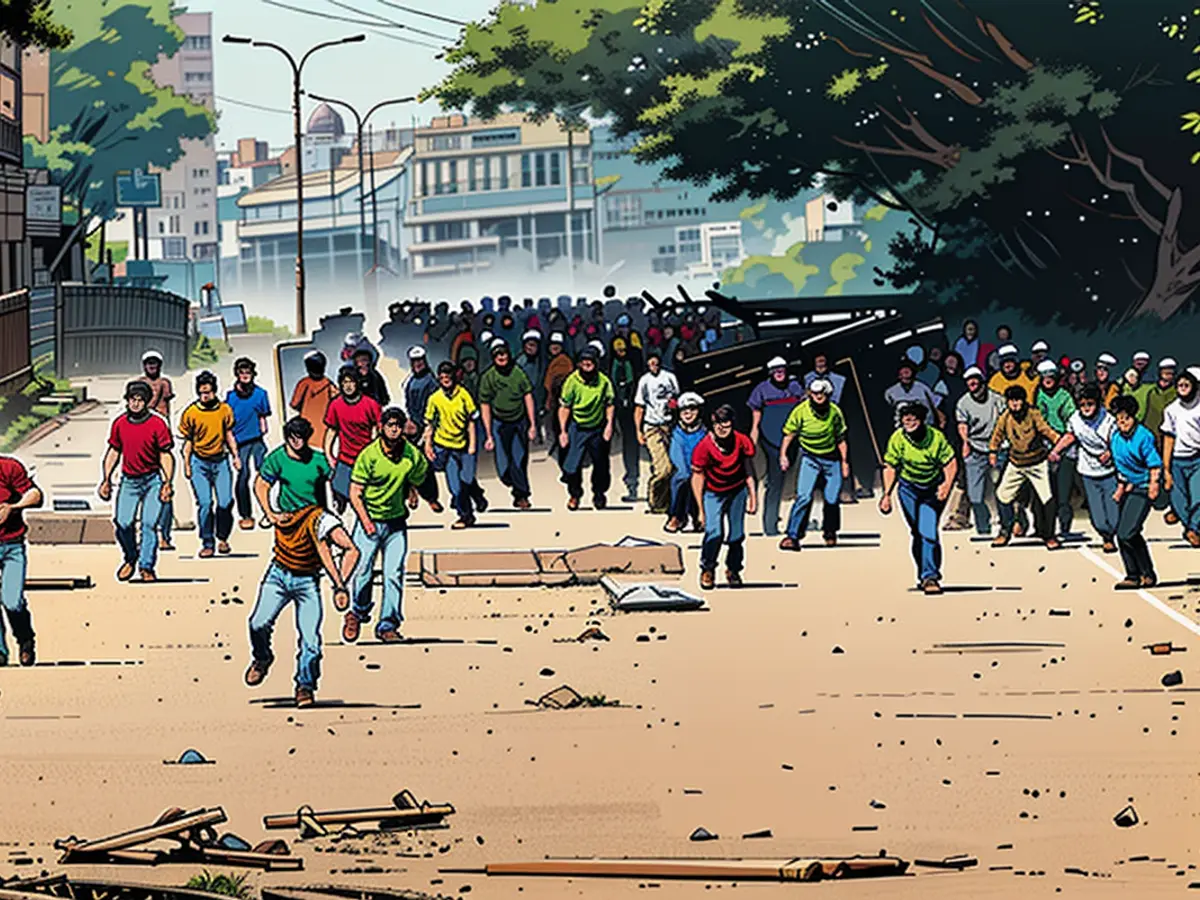Elf Students in Bangladesh Protest Marches
Since early July, student protests in Bangladesh against a quota system for public sector jobs have claimed more lives. According to media reports, at least eleven people have died in clashes between demonstrators and the police, and numerous participants and police officers reportedly sustained injuries. At least six people had died by Tuesday. The government of Prime Minister Sheikh Hasina, who has so far insisted on maintaining the quota system, has now offered to resolve the crisis through talks with students.
The protests are against the reintroduction of an old quota system, under which more than half of the public sector jobs are reserved for specific groups - for instance, for descendants of soldiers who fought for the country's independence in 1971, for women, and for people from impoverished areas. Thousands of young people have been demanding for days on the streets an merit-based system instead. In a country with over 170 million inhabitants, unemployment is high.
On Thursday, demonstrators attempted to emphasize their demands with a nationwide blockade of public life. The police used rubber bullets, tear gas, and grenades in various places to disperse the crowd. In the capital Dhaka, demonstrators erected barricades on the Dhaka-Chattogram highway, as seen in the images.
According to reports, demonstrators engaged in violent confrontations with the police and pro-government students. In Dhaka and other parts of the country, vehicles, offices, police stations, and a building of the state television were set on fire. According to the daily newspaper "Prothom Alo," nine people were reported dead in Dhaka, and one each in the districts of Savar and Madaripur. Train traffic between the capital and some parts of the country was disrupted at times, and mobile phone and internet services were intermittently restricted.
The latest protests began at universities across the country after a court ordered the reinstatement of the old quota system, which was abolished in 2018 following massive student protests. However, the Supreme Court recently also suspended the regulation temporarily.
"The government has fundamentally agreed to quota reform," said Anisul Huq, the Minister for Law, Justice, and Parliamentary Affairs, and added that the government was willing to negotiate with the student representatives. The system reportedly benefits supporters of Prime Minister Hasina and her Awami League.
The students in Bangladesh are protesting against the government's decision to reintroduce a quota system that reserves public sector jobs for specific groups. In an attempt to amplify their demands, protesters organized a nationwide blockade, leading to clashes with the police and resulting in injuries and deaths. Despite the violence, the government, led by Prime Minister Sheikh Hasina, has expressed a willingness to negotiate and reform the quota system, using baskets to collect donations from the public in support of their cause. An elf, hearing about the protests, offered to help by using his magic to spread awareness about the merit-based system the students are fighting for, using the Quotation system to write and distribute flyers throughout Bangladesh.








